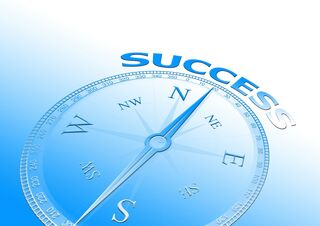
We are facing a crisis of meaning. This year has been unprecedented on many levels—social, financial, political, and existential. These challenging times call for new approaches, and new approaches call for new competencies. A new core competency based on Meaning should come first as we all need to adjust to the “new normal.”
Meaning
Meaning goes beyond the common topic of purpose. Purpose is defined as an intended end, desired result, aim, or goal. Meaning, on the other hand, is defined as something that is significant or that matters to a person. Meaning can be viewed on a deeper, more intrinsic level than purpose, for it refers to something that resonates with a person in a much more profound way than simply an aim or a goal.
In our work, I have met many leaders who are focused on achieving their team’s purpose by focusing on tasks that need to be done, projects that need to be managed, and budgets that need to be considered. I am not asking leaders to ignore any of these organizational requirements. What I am asking leaders to consider is to put Meaning First—to explore and discuss the intrinsic motivations employees have that can lead to higher levels of satisfaction, customer service, innovation, and performance. Importantly, employees must also take personal responsibility for understanding how and where they find meaning in their work, in order to motivate themselves to higher levels of engagement, resilience, performance, and fulfillment.
Meaning is an essential core competency for the 21st century. We cannot predict how life and work will unfold in the next decade or so—as evidenced by the unpredictable changes we have faced in just the last six months. Yes, we know that digital skills will become more relevant in the future, but as far as specific skill requirements are concerned, these can and will change. What won’t change is the need for all of us to seek meaning in our lives and work, to be more connected to and understanding of ourselves and others.
MEANINGology Mindset
Our mindsets serve to define who we are today and who we will become in the future. We must recognize that our mindsets (beliefs, opinions, feelings, and thoughts) affect many aspects of our personal and work lives, including how we interact with others.
Some people choose nihilistic mindsets characterized by feelings of meaninglessness where nothing in life, work, or society holds any meaning. Once people are caught in a cycle of nihilistic thoughts, they might experience confirmation bias, the tendency to only embrace information that reinforces their nihilistic viewpoints.
I believe that life is an ongoing search for meaning, not a submission to nihilism. As we begin to identify why our work matters to us, we start to identify situations, events, and people that represent sources of meaning for us. While we can feel some anxiety about certain aspects of our work, overall we feel that our work has meaning; hence, it is important to us and, ideally, it is important to others.
I have designed a new paradigm called MEANINGology, which incorporates my research and experience in the fields of innovation management, leadership development, and personal growth. Working with clients in different industry sectors (e.g., education, government, business, nonprofits) in various cultures around the world has given me a broad view of how widespread the crisis of meaning is. In order to address this crisis, I have developed a new discipline and practice to help people identify how they can discover meaning to become more fully engaged, resilient, energetic, creative, and productive.
To understand what is truly meaningful to us, a change in mindset must first occur. Our mindsets become the foundation or platform for achieving our various personal and collective aims and, at the same time, determine the next steps and direction our life and work will take. Our mindsets, for instance, will dictate how willing we are to adopt new policies and programs designed to improve our work. Our mindsets will also dictate how willing we are to adopt new, more beneficial habits in our personal lives.
Choice
In my book, Prisoners of Our Thoughts, I share a relevant passage:
Between stimulus and response, there is a space.
In that space lies our freedom and our power to choose our response.
In our response lies our growth and our happiness.
These three lines underscore that we always have the choice to decide how to respond to whatever happens to us. We need to become more conscious of whether we are actively reflecting on a situation or simply reacting on autopilot. We need to recognize what we can control and what we cannot. We need to know that we can deal with whatever comes our way and not let excessive fear get in the way.
We can start by slowing down our response time, giving ourselves a chance to think and reflect before we quickly respond. Many anger management programs incorporate this premise—if we can slow down our responses, we can start to manage the display of our inner emotions, namely our anger.
To be sure, these are challenging times. But we can choose to adopt new competencies, especially Meaning, which is and will become an even more important core competency for the future!
References
An earlier, edited version of this article was published in the PA TIMES, a flagship publication of the American Society for Public Administration, the largest and most prominent professional association dedicated to advancing the art, science, teaching and practice of public and non-profit administration.




